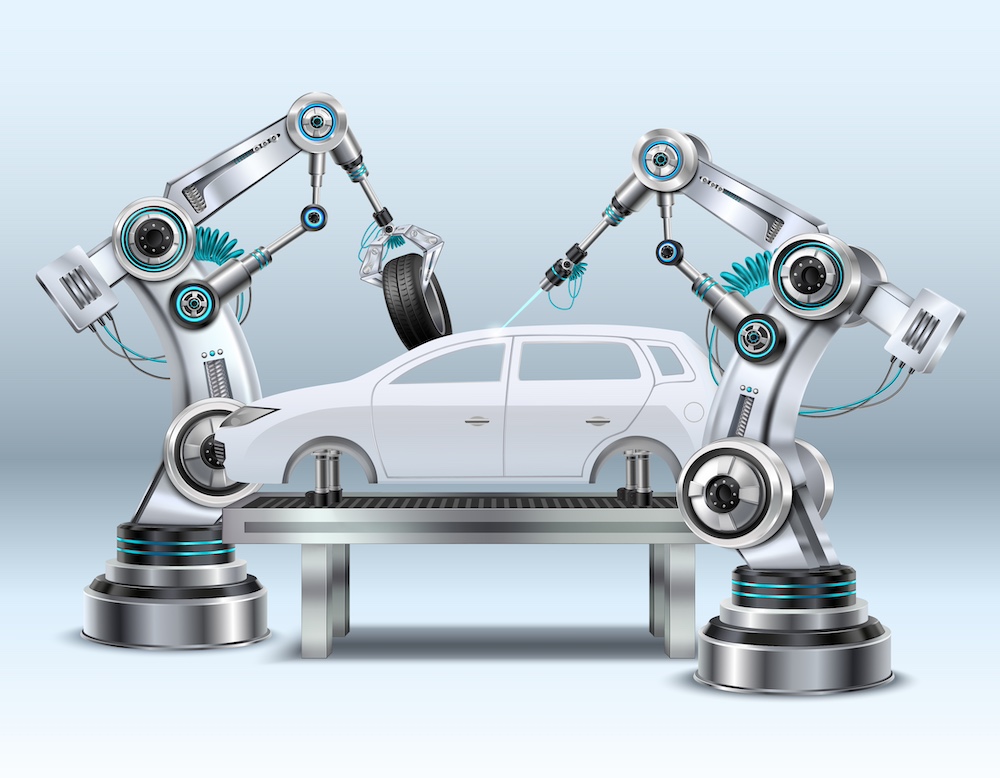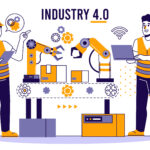
The automotive industry faces significant challenges, including rising competition, fluctuating demand, and the need for seamless operations. Implementing ERP software helps businesses address these challenges by streamlining processes, reducing costs, and improving overall efficiency. These enterprise resource planning systems offer integrated solutions to manage complex supply chains, production schedules, and quality control in a single platform.
Why ERP is Crucial for the Automotive Sector
Automotive businesses require robust systems to handle their complex operations. ERP software addresses these needs with precision and scalability.
- Enhanced Supply Chain Management
ERP software improves supply chain visibility, helping businesses track components, minimize delays, and maintain optimal inventory levels. - Streamlined Production Processes
ERP systems ensure smooth production by automating workflows, reducing manual errors, and optimizing resource allocation across all units. - Improved Quality Control
With real-time data, ERP software helps monitor product quality, ensuring compliance with stringent industry standards and customer expectations. - Better Cost Management
ERP systems centralize data, allowing businesses to identify cost-saving opportunities, optimize budgets, and enhance financial performance.
How Enterprise Resource Planning Systems Transform Automotive Operations
Automotive manufacturers benefit significantly from enterprise resource planning systems through integrated features tailored to the industry’s needs:
- Automated Workflows: ERP automates repetitive tasks, saving time and improving accuracy.
- Real-Time Reporting: ERP software provides insights into production and logistics, enabling data-driven decisions.
- Regulatory Compliance: Built-in compliance modules ensure adherence to safety and environmental regulations.
Global Trends in ERP Adoption for Automotive
ERP adoption is rising globally, driven by advancements in technology and growing demand for efficient operations. According to MarketsandMarkets, the ERP market is expected to grow at a CAGR of 8.8% from 2023 to 2030. Automotive companies, in particular, are adopting ERP to integrate operations and meet growing demands.
A study by McKinsey reveals that businesses using ERP in automotive reduce production errors by 20%, achieving better output quality. Additionally, global supply chain disruptions have accelerated ERP adoption, helping companies navigate uncertainties effectively.
Key Features of ERP Software for Automotive Businesses
Choosing the right ERP software for automotive requires a focus on features that address specific industry challenges.
- Integrated Supply Chain Modules
ERP software integrates procurement, inventory, and logistics, ensuring seamless coordination and reducing material shortages. - Production Planning Tools
Advanced planning features in ERP systems optimize production schedules, reducing downtime and enhancing throughput. - Customer Relationship Management (CRM)
ERP systems include CRM tools to manage dealer relationships and provide better after-sales service. - Data Analytics and Forecasting
Predictive analytics within ERP helps forecast demand, plan resources, and prepare for future industry trends.
Benefits of ERP Implementation in the Automotive Sector
Implementing ERP software offers long-term benefits that drive operational excellence and competitiveness:
- Reduced Operational Costs
Businesses using ERP save up to 15% annually by automating manual tasks and optimizing resource utilization. - Improved Decision-Making
ERP systems provide real-time insights, enabling quick, informed decisions that reduce risks and enhance performance. - Enhanced Collaboration
Centralized data ensures that all departments work together seamlessly, improving efficiency and reducing communication gaps. - Scalability for Growth
ERP solutions grow with the business, allowing companies to expand operations without system limitations.
Real-World Impact of ERP in Automotive
A leading global automaker reduced production delays by 25% after implementing ERP software tailored to their operations. This transformation streamlined supply chain workflows and improved overall efficiency.
Similarly, an auto parts manufacturer increased inventory accuracy by 30%, preventing stockouts and overproduction. This success was achieved through real-time tracking enabled by ERP software.
Challenges in ERP Implementation
While ERP software offers numerous benefits, businesses must address challenges to ensure successful implementation:
- High Initial Investment
ERP implementation requires significant upfront costs. However, the long-term savings often outweigh this initial expense. - Employee Training
Staff must be adequately trained to use ERP systems effectively. Investing in training is crucial for success. - Customization Needs
Tailoring ERP systems to meet specific business requirements can be time-consuming, but it ensures better alignment with goals.
Future of ERP in the Automotive Industry
As the automotive industry evolves, ERP software will play an even more vital role. Emerging technologies like IoT, AI, and machine learning will enhance ERP capabilities, enabling predictive maintenance, real-time analytics, and smarter production systems.
Additionally, the push for sustainability will drive ERP systems to integrate eco-friendly practices, such as energy-efficient production planning and waste management.
Conclusion: Driving Excellence with ERP
Implementing ERP software is no longer a luxury but a necessity for achieving operational excellence in the automotive industry. These enterprise resource planning systems streamline processes, improve quality, and reduce costs, giving businesses a competitive edge. By adopting ERP, automotive companies can stay ahead in a dynamic and challenging market.
If you’re ready to explore how ERP can revolutionize your automotive operations, contact us today for tailored solutions!

